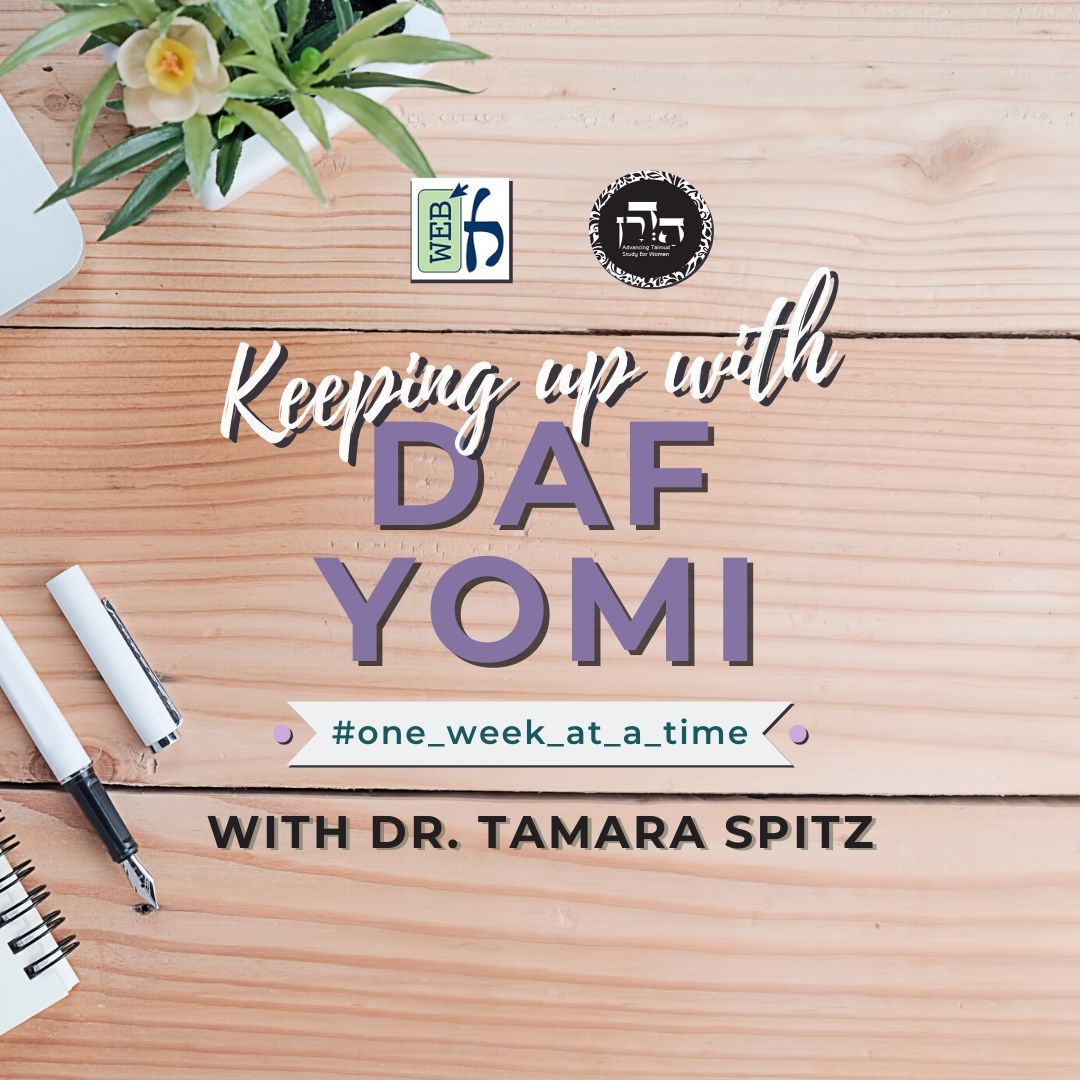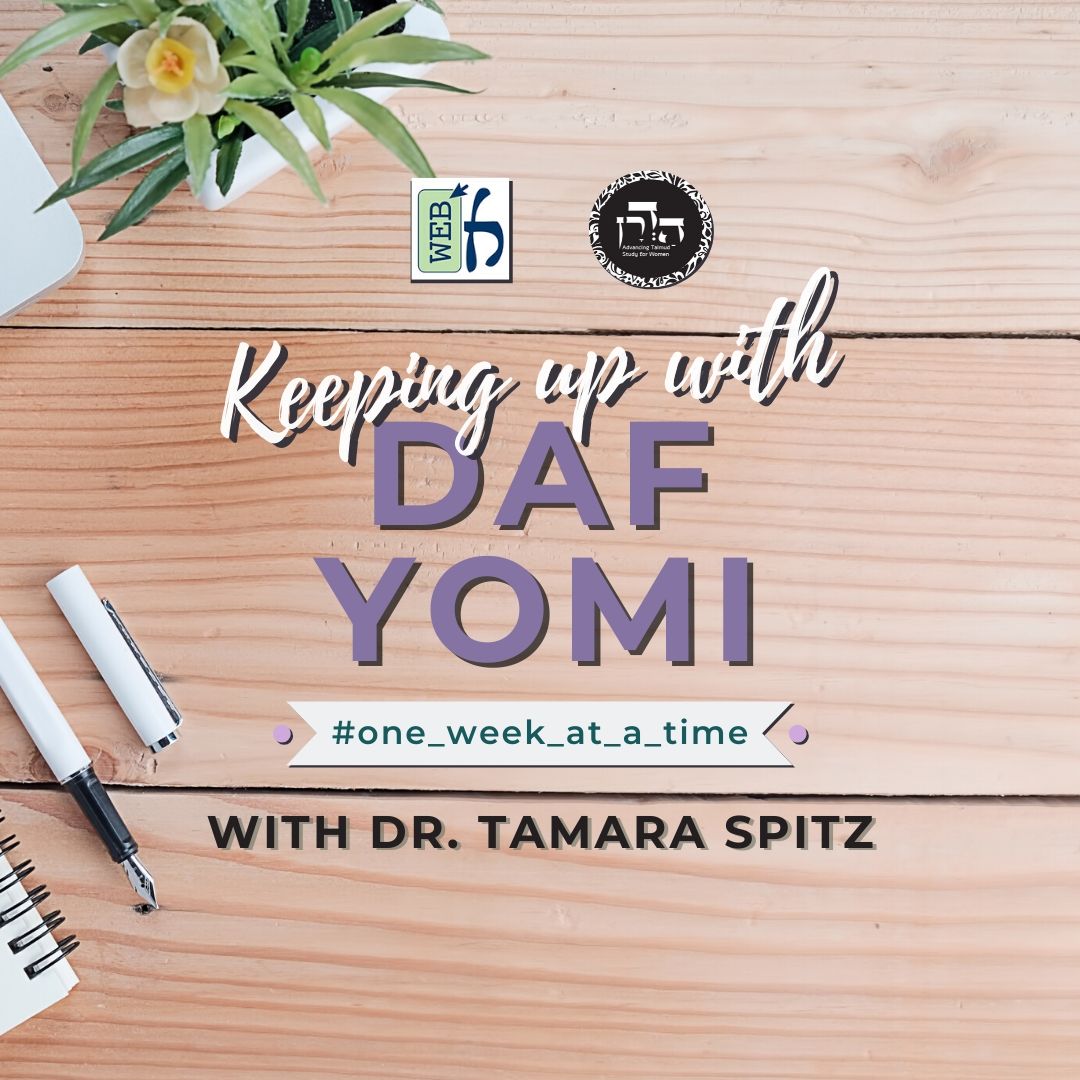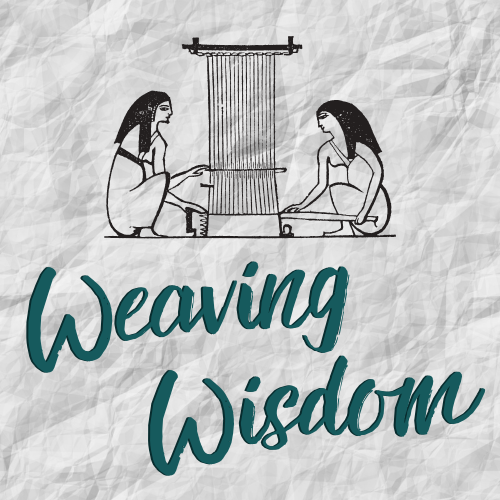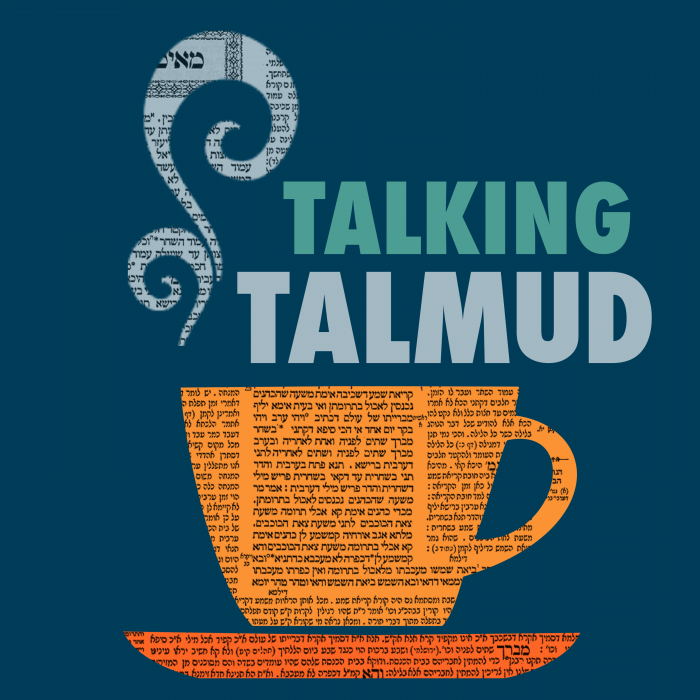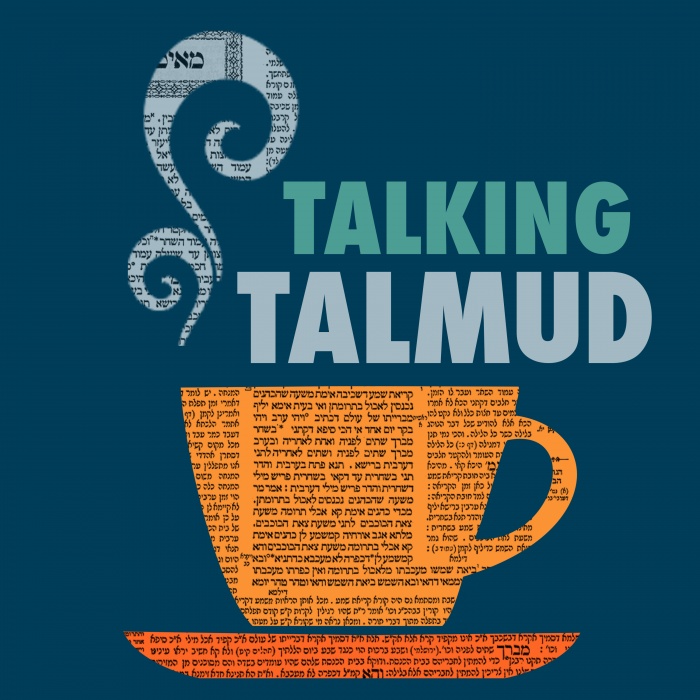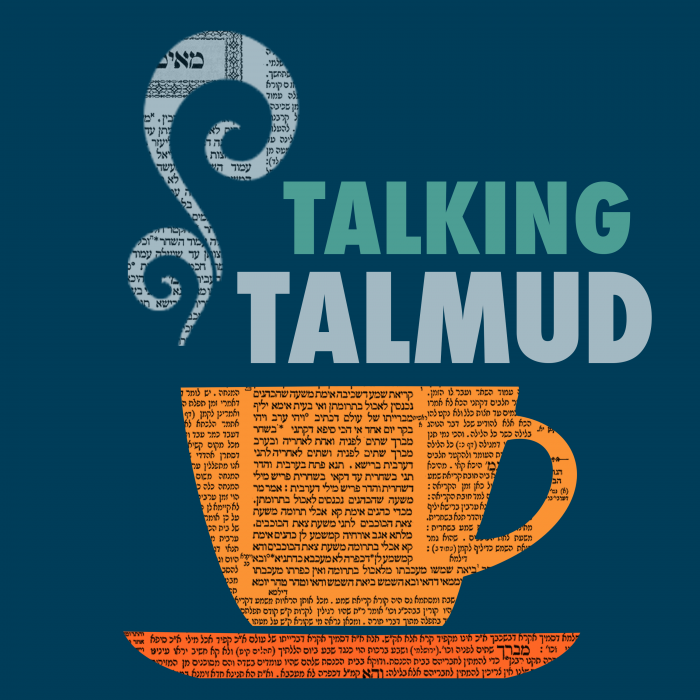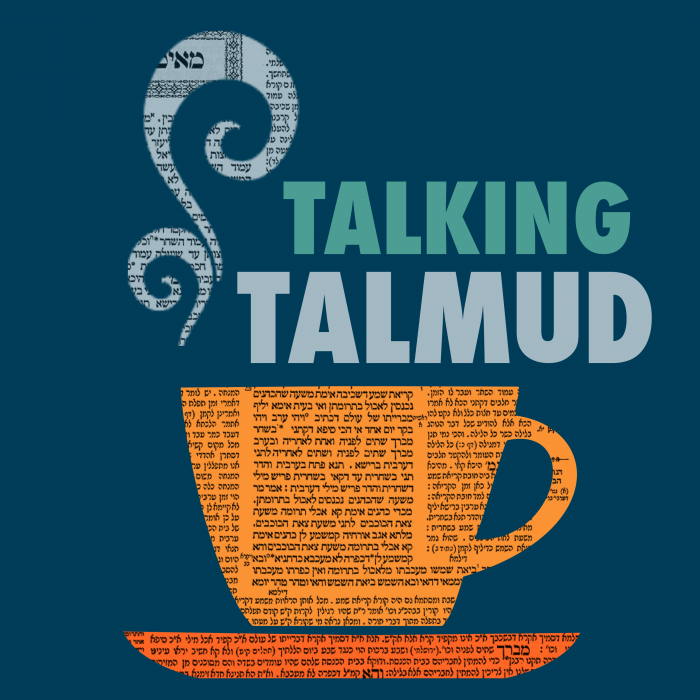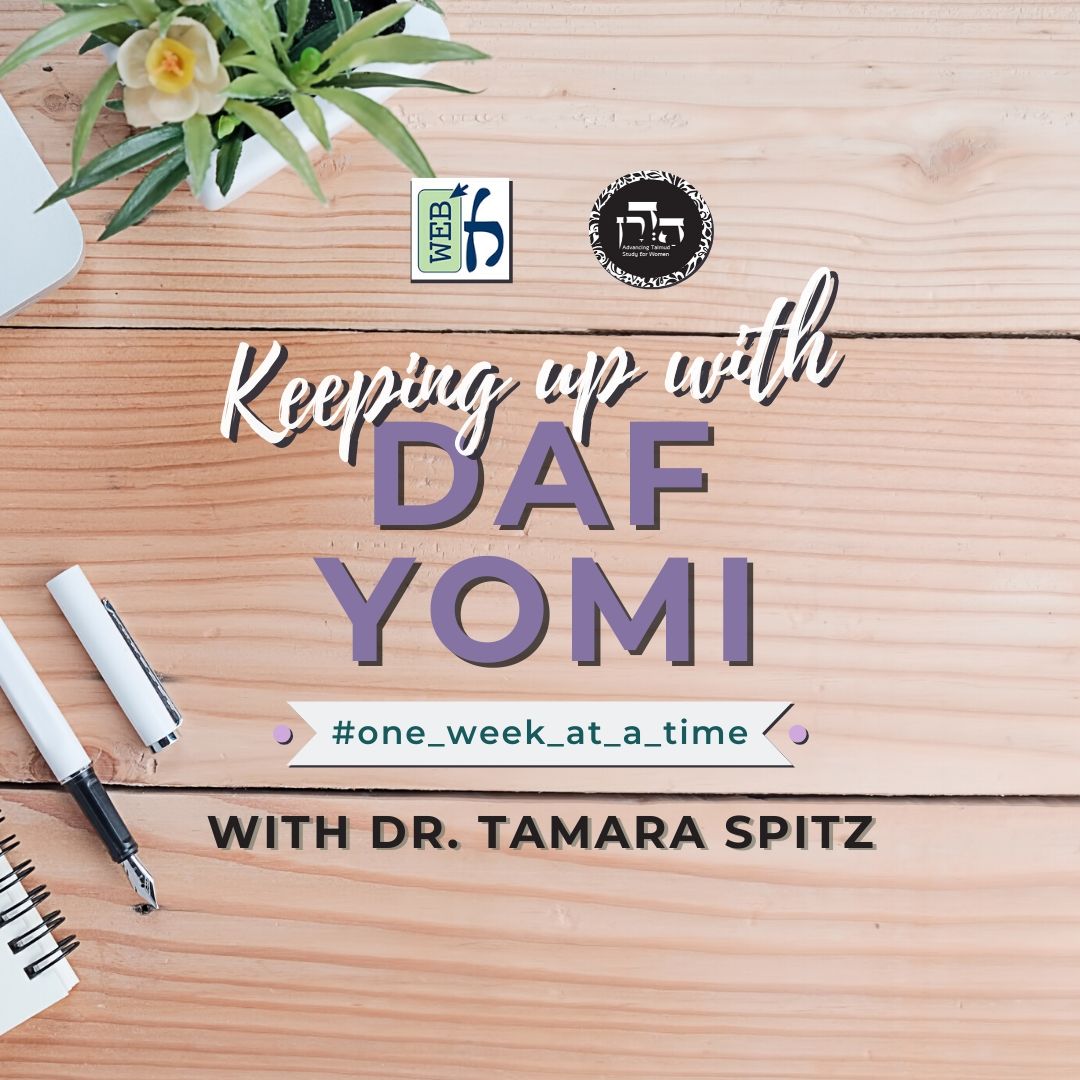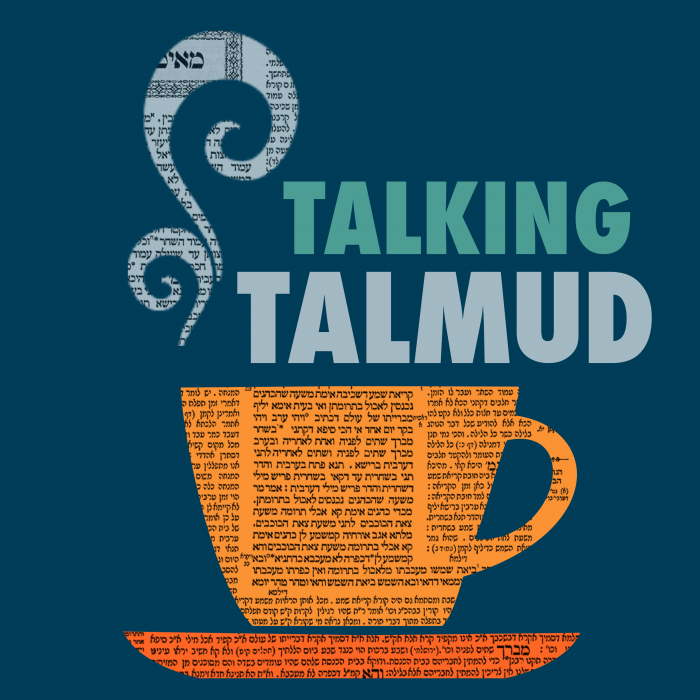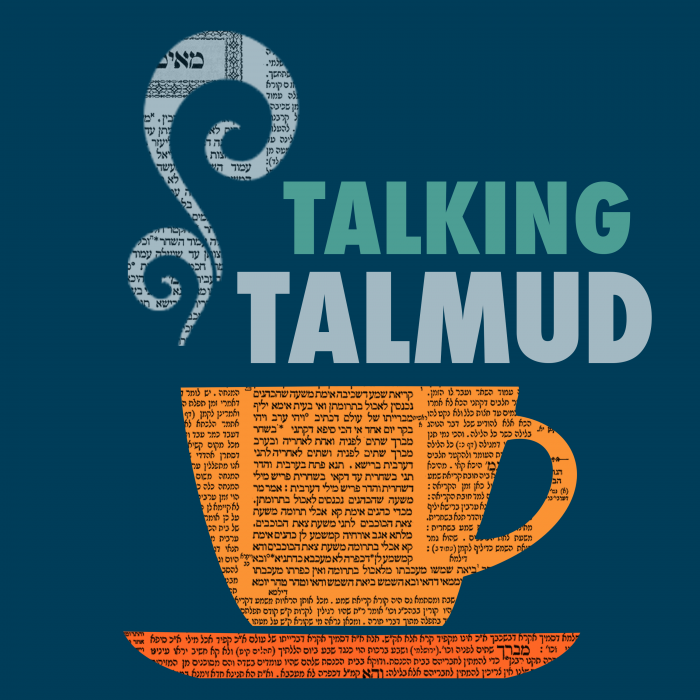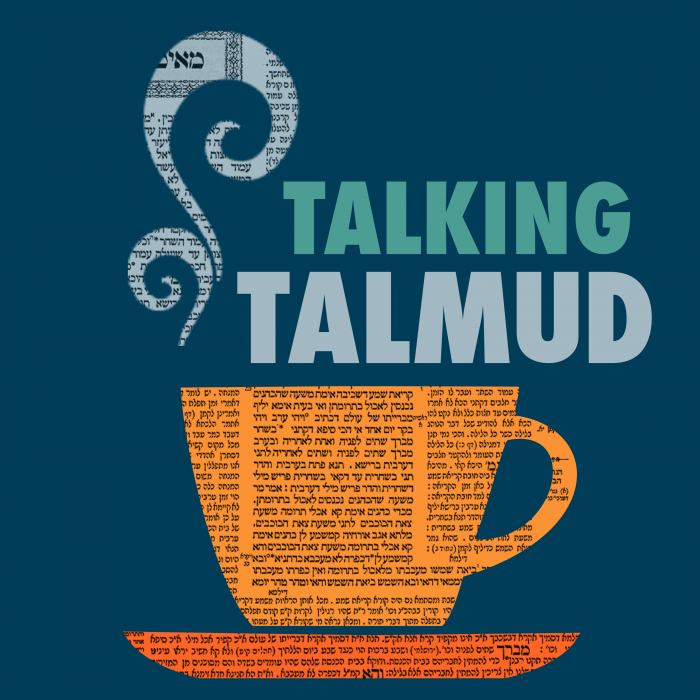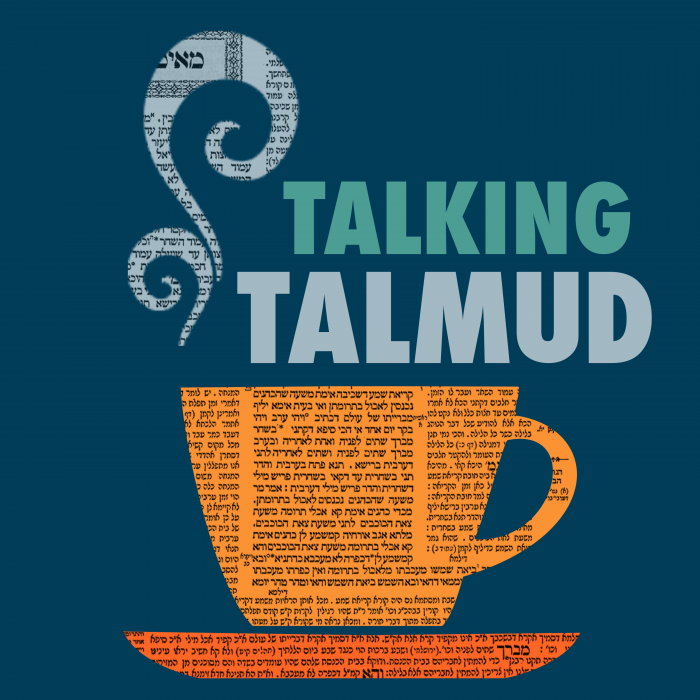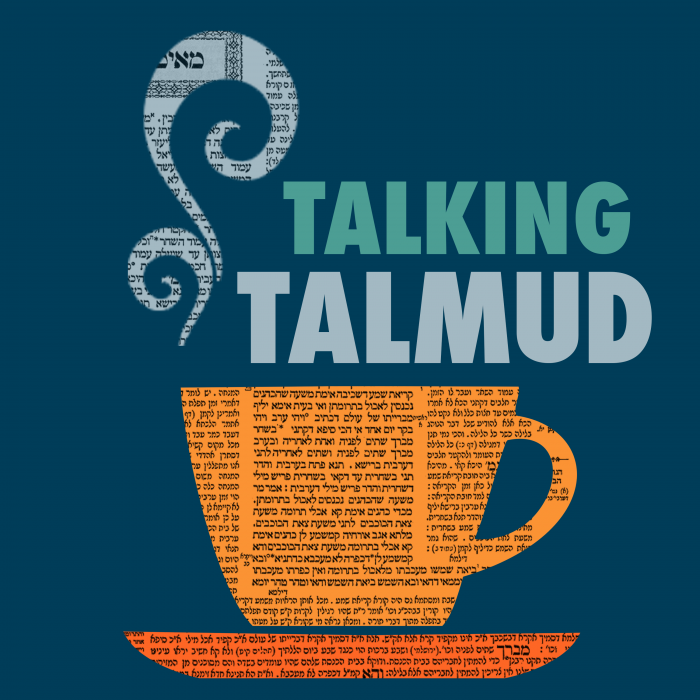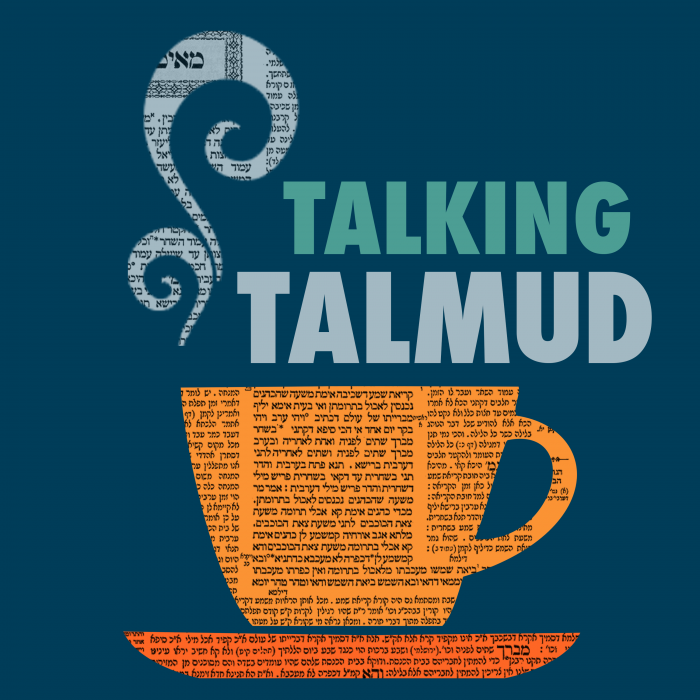Shabbat 144
שֶׁלֹּא לְרָצוֹן, שֶׁדַּם מַגֵּפָתָהּ טָהוֹר?! אָמַר לָהֶן: מַחְמִיר אֲנִי בֶּחָלָב מִבַּדָּם, שֶׁהַחוֹלֵב לִרְפוּאָה — טָמֵא, וְהַמַּקִּיז לִרְפוּאָה — טָהוֹר. אָמְרוּ לוֹ: סַלֵּי זֵיתִים וַעֲנָבִים יוֹכִיחוּ, שֶׁהַמַּשְׁקִין הַיּוֹצְאִין מֵהֶן לְרָצוֹן — טְמֵאִין, שֶׁלֹּא לְרָצוֹן — טְהוֹרִים.
if it was expressed unintentionally, as the blood of its wound is ritually pure, meaning that it does not render food susceptible to ritual impurity. Rabbi Akiva said to them: I am more stringent with regard to milk than with regard to blood, as if one milks an animal for medicinal purposes, the milk renders food susceptible to ritual impurity, and if one lets blood for medicinal purposes, the status of the blood is not that of a liquid and is ritually pure, in the sense that it does not render food susceptible to ritual impurity. They said to him: The case of baskets of olives and grapes will prove that there is a difference between liquids that emerge of his own volition and those that do not, as liquid that seeps from them volitionally renders food susceptible to ritual impurity. However, liquid that seeps from them unvolitionally is ritually pure, i.e., it does not render food susceptible to ritual impurity. Apparently, liquid renders food susceptible to ritual impurity only if it emerged of its own volition.
מַאי לָאו ״לְרָצוֹן״ — דְּנִיחָא לֵיהּ, ״שֶׁלֹּא לְרָצוֹן״ — בִּסְתָמָא. וּמָה זֵיתִים וַעֲנָבִים דִּבְנֵי סְחִיטָה נִינְהוּ, שֶׁלֹּא לְרָצוֹן — וְלֹא כְלוּם, תּוּתִים וְרִמּוֹנִים, דְּלָאו בְּנֵי סְחִיטָה נִינְהוּ, לֹא כׇּל שֶׁכֵּן?
The Gemara analyzes the terms of that mishna: What, is it not true that the term volitionally is referring to a situation where one is pleased with the emergence of liquids, and the term unvolitionally is referring to an indeterminate situation, where he expressed no preference? This leads to a conclusion with regard to our original topic of discussion. Just as in the case of olives and grapes, which are primarily designated for squeezing in order to extract oil and wine respectively, if liquid leaked from them unvolitionally, in the sense that one did not intend for the liquid to emerge, it has no significance and does not render food susceptible to ritual impurity; in the case of mulberries and pomegranates, which are not typically designated for squeezing, is it not all the more so that liquid that seeps from them unvolitionally does not render food susceptible to ritual impurity?
לֹא: ״לְרָצוֹן״ — בִּסְתָמָא, ״שֶׁלֹּא לְרָצוֹן״ — דְּגַלִּי אַדַּעְתֵּיהּ, דְּאָמַר: ״לָא נִיחָא לִי״. וְאִיבָּעֵית אֵימָא: שָׁאנֵי סַלֵּי זֵיתִים וַעֲנָבִים, כֵּיוָן דִּלְאִיבּוּד קָיְימִי, מֵעִיקָּרָא אַפְקוֹרֵי מַפְקַר לְהוּ.
The Gemara refutes this argument: No, the term volitionally is referring even to a situation where one’s preference is indeterminate, and the term unvolitionally is referring to a situation where one revealed his mind-set explicitly and said: I am not pleased if liquid emerges. And if you wish, say instead that baskets of olives and grapes are different; since the liquid that leaks from them stands to be lost, one renounces it from the outset. No proof can be cited from this mishna. Generally speaking, however, the legal status of liquids that are not designated to be lost from the outset is that of liquids, even if one did not express pleasure with their emergence.
אַשְׁכְּחַן רַבִּי יְהוּדָה דְּמוֹדֵי לְרַבָּנַן בְּזֵיתִים וּבַעֲנָבִים. רַבָּנַן דְּמוֹדוּ לֵיהּ לְרַבִּי יְהוּדָה בִּשְׁאָר פֵּירוֹת מְנָלַן? דְּתַנְיָא: סוֹחֲטִין
We have found in the baraita cited above that Rabbi Yehuda conceded to the Rabbis with regard to olives and grapes, that liquid that seeps from them on its own on Shabbat, both volitionally and unvolitionally, is prohibited during Shabbat. From where do we conclude that the Rabbis concede to Rabbi Yehuda with regard to other fruits and distinguish between fruits designated for eating and those designated for juicing? As it was taught in a baraita: One may squeeze
בִּפְגָעִין וּבִפְרִישִׁין וּבְעוּזְרָדִין, אֲבָל לֹא בְּרִמּוֹנִים, וְשֶׁל בֵּית מְנַשְּׁיָא בַּר מְנַחֵם הָיוּ סוֹחֲטִין בְּרִמּוֹנִים.
plums and quinces and crab apples. However, one may not squeeze pomegranates, because they are typically squeezed for their juice, as people from the house of Menashya bar Menaḥem would squeeze pomegranates during the week. Apparently, the Rabbis concede to Rabbi Yehuda with regard to fruits other than pomegranates and mulberries.
וּמִמַּאי דְּרַבָּנַן הִיא, דִּילְמָא רַבִּי יְהוּדָה הִיא?! וְתֶהֱוֵי נָמֵי רַבִּי יְהוּדָה, אֵימַר דְּשָׁמְעַתְּ לֵיהּ לְרַבִּי יְהוּדָה יָצְאוּ מֵעַצְמָן, סוֹחֲטִין לְכַתְּחִילָּה מִי שָׁמְעַתְּ לֵיהּ?! אֶלָּא מַאי אִית לָךְ לְמֵימַר: כֵּיוָן דְּלָאו בְּנֵי סְחִיטָה נִינְהוּ — אֲפִילּוּ לְכַתְּחִילָּה. אֲפִילּוּ תֵּימָא רַבָּנַן, כֵּיוָן דְּלָאו בְּנֵי סְחִיטָה נִינְהוּ — אֲפִילּוּ לְכַתְּחִילָּה, שְׁמַע מִינַּהּ רַבָּנַן הִיא. שְׁמַע מִינַּהּ.
The Gemara objects: And from where is it ascertained that this baraita is in accordance with the opinion of the Rabbis? Perhaps it is in accordance with the opinion of Rabbi Yehuda. The Gemara answers: And let this baraita also be the opinion of Rabbi Yehuda: Say that you heard that according to Rabbi Yehuda, juice that seeped out on its own is permitted; did you hear that squeezing it is permitted ab initio? Rather, what have you to say? Since they are not fruits that are generally designated for squeezing, it is permitted to squeeze them even ab initio. That being the case, even if you say the baraita is in accordance with the opinion of the Rabbis, the same reasoning applies: Since they are not generally designated for squeezing, it is permitted to squeeze them even ab initio. Even the Rabbis would permit squeezing fruits such as plums, quinces, and crab apples. Since the baraita does not permit squeezing pomegranates, learn from it that the baraita is in accordance with the opinion of the Rabbis. The Gemara concludes: Indeed, learn from it.
שֶׁל בֵּית מְנַשְּׁיָא בַּר מְנַחֵם הָיוּ סוֹחֲטִין בְּרִמּוֹנִים. אָמַר רַב נַחְמָן: הֲלָכָה כְּשֶׁל בֵּית מְנַשְּׁיָא בַּר מְנַחֵם.
It was taught in the baraita cited above that people from the house of Menashya bar Menaḥem would squeeze pomegranates on weekdays. This indicates that it is typical for people to squeeze pomegranates, and therefore it is prohibited to do so on Shabbat. Rav Naḥman said: The halakha is in accordance with the practice of the people from the house of Menashya bar Menaḥem. In other words, squeezing pomegranates is considered typical, and therefore it is prohibited on Shabbat.
אֲמַר לֵיהּ רָבָא לְרַב נַחְמָן: מְנַשְּׁיָא בֶּן מְנַחֵם תַּנָּא הוּא?! וְכִי תֵּימָא הֲלָכָה כִּי הַאי תַּנָּא דְּסָבַר לַהּ כְּשֶׁל מְנַשְּׁיָא בֶּן מְנַחֵם, וּמִשּׁוּם דְּסָבַר כִּמְנַשְּׁיָא בֶּן מְנַחֵם הֲלָכָה כְּמוֹתוֹ? מְנַשְּׁיָא בֶּן מְנַחֵם הָוֵי רוּבָּא דְּעָלְמָא?
Rava said to Rav Naḥman: Is Menashya ben Menaḥem a tanna that you say the halakha is in accordance with his opinion? And if you say that Rav Naḥman meant that the halakha is in accordance with this tanna, who held in accordance with the practice of the people from the house of Menashya ben Menaḥem, there is still room to ask: Does it make sense that because he held in accordance with the practice of the people from the house of Menashya ben Menaḥem, the halakha is in accordance with his opinion? Does Menashya ben Menaḥem constitute the majority of the world? Since most people do not squeeze pomegranates, the practice of the people from the house of Menashya ben Menaḥem should be irrelevant relative to the typical practice of others.
אִין, דִּתְנַן: הַמְקַיֵּים קוֹצִים בַּכֶּרֶם, רַבִּי אֱלִיעֶזֶר אוֹמֵר: קִדֵּשׁ, וַחֲכָמִים אוֹמְרִים: אֵינוֹ מְקַדֵּשׁ אֶלָּא דָּבָר שֶׁכָּמוֹהוּ מְקַיְּימִין. וְאָמַר רַבִּי חֲנִינָא: מַאי טַעְמָא דְּרַבִּי אֱלִיעֶזֶר — שֶׁכֵּן בַּעֲרַבְיָא מְקַיְּימִין קוֹצֵי שָׂדוֹת לִגְמַלֵּיהֶם.
Rav Naḥman answered: Yes, in cases of this kind, halakhic rulings are based even on practices that are not universal, as we learned in a mishna that addresses the prohibition of diverse kinds, particularly forbidden food crops in a vineyard. With regard to one who maintains thorns in a vineyard, Rabbi Eliezer says: He rendered the crops a forbidden mixture of food crops in a vineyard. And the Rabbis say: Only a crop that people typically maintain renders a vineyard forbidden. And Rabbi Ḥanina said: What is the reason for the opinion of Rabbi Eliezer? Because in Arabia they maintain the thorns of the fields to feed them to their camels. There, thorns are treated as a bona fide crop. According to this opinion, since thorns are maintained in one place, they are considered to be significant everywhere. The same reasoning applies to the issue of juicing pomegranates.
מִידֵּי אִירְיָא? דַּעֲרַבְיָא אַתְרָא, הָכָא — בָּטְלָה דַּעְתּוֹ אֵצֶל כׇּל אָדָם!
The Gemara rejects this answer: Is this comparable? Arabia is a place, and a custom practiced in an entire country is significant. Here, with regard to the practice of the house of Menashya bar Menaḥem, who was an individual, his opinion is rendered irrelevant by the opinions of all other men.
אֶלָּא הַיְינוּ טַעְמָא, כִּדְרַב חִסְדָּא. דְּאָמַר רַב חִסְדָּא: תְּרָדִין שֶׁסְּחָטָן וּנְתָנָן בְּמִקְוֶה — פּוֹסְלִין אֶת הַמִּקְוֶה בְּשִׁינּוּי מַרְאֶה. וְהָא לָאו בְּנֵי סְחִיטָה נִינְהוּ? אֶלָּא מַאי אִית לָךְ לְמֵימַר — כֵּיוָן דְּאַחְשְׁבִינְהוּ, הָווּ לְהוּ מַשְׁקֶה, הָכָא נָמֵי: כֵּיוָן דְּאַחְשְׁבִינְהוּ, הָווּ לְהוּ מַשְׁקֶה.
Rather, this is the reason for Rav Naḥman’s statement: It is in accordance with the opinion of Rav Ḥisda, as Rav Ḥisda said: In the case of beets that one squeezed and then placed their juice in a ritual bath, the juice invalidates the ritual bath if it causes a change of appearance. Any liquid that causes the water of a ritual bath to change color invalidates the ritual bath. Rav Ḥisda elaborated: Aren’t beets typically not designated for squeezing? Rather, what have you to say? Since he ascribed it significance, it is considered a liquid. Here, too, with regard to pomegranates, since he ascribed it significance, it is considered a liquid. Even if one person ascribes significance to a liquid, it assumes for him the status of a liquid and is prohibited on Shabbat.
רַב פָּפָּא אָמַר: מִשּׁוּם דְּהָוֵי דָּבָר שֶׁאֵין עוֹשִׂין מִמֶּנּוּ מִקְוֶה לְכַתְּחִילָּה, וְכׇל דָּבָר שֶׁאֵין עוֹשִׂין מִמֶּנּוּ מִקְוֶה לְכַתְּחִילָּה — פּוֹסֵל אֶת הַמִּקְוֶה בְּשִׁינּוּי מַרְאֶה.
Rav Pappa said that the reason Rav Ḥisda ruled that beet juice invalidates the ritual bath is because it is something with which one may not make a ritual bath ab initio, and there is a principle: Anything with which one may not make a ritual bath ab initio, i.e., anything other than water, snow, or ice, invalidates the ritual bath if it causes a change of appearance, even if it does not have the legal status of a liquid.
תְּנַן הָתָם: נָפַל לְתוֹכוֹ יַיִן אוֹ חוֹמֶץ וּמוֹחַל, וְשִׁינָּה מַרְאָיו — פָּסוּל. מַאן תַּנָּא דְּמוֹחַל מַשְׁקֶה הוּא? אָמַר אַבָּיֵי: רַבִּי יַעֲקֹב הִיא. דְּתַנְיָא, רַבִּי יַעֲקֹב אוֹמֵר: מוֹחַל הֲרֵי הוּא כְּמַשְׁקֶה. וּמַה טַּעַם אָמְרוּ מוֹחַל הַיּוֹצֵא בַּתְּחִלָּה טָהוֹר — לְפִי שֶׁאֵינוֹ רוֹצֶה בְּקִיּוּמוֹ.
We learned in a mishna there, in tractate Mikvaot: If wine or vinegar or olive discharge, i.e., the liquid that comes from olives but is not oil, fell into a ritual bath and changed its appearance, the ritual bath is invalid. The Gemara asks: Who is the tanna who holds that olive discharge is considered liquid? Abaye said: It is Rabbi Ya’akov, as it was taught in a baraita that Rabbi Ya’akov says: The legal status of olive discharge is like that of a liquid. And what is the reason the Sages said that olive discharge that emerges at the outset, before one begins to press the olives for their oil, is ritually pure, meaning that it does not render food susceptible to ritual impurity? It is not because the olive discharge is not considered a liquid but because he does not want its existence; the owner would prefer that the olive discharge not yet emerge and instead emerge together with and mix with the oil.
רַבִּי שִׁמְעוֹן אוֹמֵר: מוֹחַל אֵינוֹ כְּמַשְׁקֶה. וּמַה טַּעַם אָמְרוּ מוֹחַל הַיּוֹצֵא מֵעִיקּוּל בֵּית הַבַּד טָמֵא — לְפִי שֶׁאִי אֶפְשָׁר לוֹ בְּלֹא צִיחְצוּחֵי שֶׁמֶן.
Rabbi Shimon says: The legal status of olive discharge is not like that of a liquid. And what is the reason the Sages said that the olive sap that emerges from the bale of the olive press after the olives were pressed is capable of rendering foods susceptible to become ritually impure? Because it is impossible that it will not contain drops of oil that come with it from the olives.
מַאי בֵּינַיְיהוּ? אִיכָּא בֵּינַיְיהוּ דְּאָתֵי בָּתַר אִיצְצָתָא. רָבָא אָמַר: מִשּׁוּם דְּהָוֵי דָּבָר שֶׁאֵין עוֹשִׂין הֵימֶנּוּ מִקְוֶה, וּפוֹסֵל אֶת הַמִּקְוֶה בְּשִׁינּוּי מַרְאֶה.
The Gemara asks: What is the practical difference between them? They both agree that olive discharge that emerges at the outset is incapable of rendering food susceptible to ritual impurity and that olive discharge that emerges from the bale of the olive press is capable of rendering food susceptible to ritual impurity. The Gemara answers: There is a practical difference between them with regard to olive discharge that comes after extensive pressing; according to Rabbi Ya’akov, it is considered a liquid and renders food susceptible to ritual impurity, and according to Rabbi Shimon, it is not a liquid and does not render food susceptible to ritual impurity. Rava said: The reason that olive discharge invalidates a ritual bath is not because it is a liquid, but rather, because it is something with which one may not make a ritual bath ab initio, and it therefore invalidates a ritual bath if it causes a change of appearance.
אָמַר רַב יְהוּדָה אָמַר שְׁמוּאֵל: סוֹחֵט אָדָם אֶשְׁכּוֹל שֶׁל עֲנָבִים לְתוֹךְ הַקְּדֵרָה, אֲבָל לֹא לְתוֹךְ הַקְּעָרָה. אָמַר רַב חִסְדָּא: מִדִּבְרֵי רַבֵּינוּ נִלְמַד: חוֹלֵב אָדָם עֵז לְתוֹךְ הַקְּדֵרָה, אֲבָל לֹא לְתוֹךְ הַקְּעָרָה. אַלְמָא קָסָבַר מַשְׁקֶה הַבָּא לְאוֹכֶל — אוֹכֶל הוּא.
Rav Yehuda said that Shmuel said: A person may squeeze a cluster of grapes on Shabbat into a pot with food in it, and it is not considered squeezing a liquid but rather adding one food to another; however, he may not squeeze the liquid into an empty bowl. Rav Ḥisda said: From the statement of our Rabbi, Shmuel, we learn that one may milk a goat into a pot of food on Shabbat, because it is not considered to be the manner of squeezing that is prohibited as a subcategory of the labor of threshing; however, one may not do so into an empty bowl. The Gemara deduces: Apparently, he holds that liquid that comes into food is not considered liquid, but rather, it is food.
מֵתִיב רָמֵי בַּר חָמָא: זָב שֶׁחוֹלֵב אֶת הָעֵז — הֶחָלָב טָמֵא. וְאִי אָמְרַתְּ מַשְׁקֶה הַבָּא לָאוֹכָלִין אוֹכֶל הוּא, בְּמַאי אִיתַּכְשַׁר?
Rami bar Ḥama raised an objection from the following mishna: In the case of a zav who milks a goat, the milk is ritually impure whether or not the zav actually touched it, as a zav renders items ritually impure simply by moving them, or being moved by them, even without direct contact. And if you say that liquid that comes directly into food is food and not liquid, in the case of one who milked directly into a pot of food, the milk should be considered food. The halakha is that food cannot become ritually impure unless it is rendered susceptible to ritual impurity through contact with a liquid. With what liquid was this milk rendered susceptible to ritual impurity?
כִּדְאָמַר רַבִּי יוֹחָנָן: בְּטִיפָּה הַמְלוּכְלֶכֶת עַל פִּי הַדַּד, הָכָא נָמֵי: בְּטִיפָּה הַמְלוּכְלֶכֶת עַל פִּי הַדַּד.
The Gemara answers: As Rabbi Yoḥanan said in a different context, that a particular statement is referring to the first drop, which is smeared on the top of the teat in order to moisten it and facilitate nursing or milking, here too, it is rendered susceptible to ritual impurity by means of the drop which is smeared on the top of the teat. This drop was not intended to fall into the pot of food and is therefore considered a liquid and renders the food susceptible to ritual impurity.
מֵתִיב רָבִינָא: טְמֵא מֵת שֶׁסָּחַט זֵיתִים וַעֲנָבִים,
Ravina raised an objection based on what we learned in another mishna: In the case of one who is ritually impure with impurity imparted by a corpse who squeezed olives or grapes




